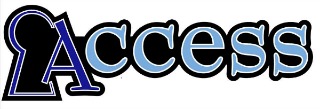Symptoms & Signs of Drug Use
If you’re trying to find out if a family member is using alcohol or drugs, observe their behavior closely. There are subtle and more obvious signs of drug use to look out for. The first step in helping a family member struggling with substance use is identifying the substance use. Depending on the person’s age, you might look for different signs and symptoms.
 Guide to Detecting Substance Use in Children & Adolescents
Guide to Detecting Substance Use in Children & Adolescents
- Missing or Performing Poorly in School – Your schoolchild might slack in school and receive declining grades. You may be at shock seeing their report card, which shows a drastic change in behavior from the past month. In addition, a teacher or administrator may report discipline problems. Your child may have demonstrated discipline problems before, or this may be new. But what’s clear is matters are getting worse at school.
- Dropping Healthy Activities – If your child is starting to withdraw from their sports practices or has begun to miss volunteer outings, you may suspect that they are up to something else. Either way, you should raise an eyebrow if they no longer seem interested in the hobbies or extracurriculars they used to be passionate about. A change in interest is a surefire sign that the child may be using.
- Unusual Borrowing of Money – If you notice money is missing from your personal drawer, or if your child is asking constantly for money and you’re suspecting it isn’t school-related, you might wonder what it’s all about. You may not be able to read your child who is telling you one story about what the money is for while you believe another.
- Rapid Change in Friends – If your child’s friends change suddenly and totally in character, switching from a quiet group to a loud group or any direction indicating a complete character switch, you might feel confused. Is your child simply changing, or are the new friends pressuring your child? You may wonder why the child has dropped old friends and replaced them so quickly. Moreover, your child may not be keen on introducing you to the new ones.
- Increased Secrecy – You may notice your child becoming more private lately. They may appear withdrawn or disinterested in usual family events, such as eating together as a family or going on a trip to the grocery store. You may wonder why they are acting different, thinking it’s just the typical moodiness of an adolescent. They may seem to dodge simple questions like, ‘How are you doing?’ or ‘How was school?’
- Sudden Mood Changes – Your child may fluctuate from one mood to another at a moment’s notice. One second they may be warm and affectionate while the other they are hostile and aggressive. You may be left thinking you do not know who that person is anymore. You may feel upset at the increased irritability, mistrust your child’s intentions when they act nice and constantly wait for the next outburst.
- Restlessness – You may look at your child and wonder where their energy comes from. They may have a lot to say and seem uncomfortable resting or acting stable. You may question why they are so off-balance, noticing a rapid speech pattern or excessive talkativeness.
- Irresponsible Behavior – Your child may seem to lack judgment or do risky, impulsive things. They may seem too eager to skip school and go out with people they hardly know. They may have little interest in chores and other mundane tasks, jumping at the opportunity to do something that gives them a rush, whether it is going to a concert or out for a drive with their reckless friend.
- Lack of Coordination – Quite interestingly, the child may have a hard time doing a task that requires basic coordination. They may slip up on a regular task, dropping a glass of water or tripping while exiting a car. Their sports ability may decline, or they may seem more jerky and less gracious in their movements.
- Difficulty Expressing Thoughts – They may stutter more than usual, forget what they were trying to say or slur as they talk. You might think, ‘my child is acting like they had a stroke!” You may grow concerned over their ability to communicate, which you take for granted.
- Depression – Your child may withdraw and appear sulky. They may seem less interested in the passions they used to have, such as spending time with friends. They may seem unresponsive or unwilling to talk or do much around the house. They may want to sleep the day away or stay inside on their weekends.
If more than one of these ring true, you may consider purchasing an at-home drug test. Looking for more signs of drug use? Here are more obvious evidence:
- Use of smelly perfume, incense or deodorant
- Use of mouthwash or breath mints
- Purchasing of glue, hairspray, nail polish or large sum of inhalable products
- Missing prescription drugs or alcohol
- Increased use of eye drops or nasal spray
- Any drug paraphernelia, such as rolling papers
 Guide to Detecting Substance Use in Adults
Guide to Detecting Substance Use in Adults
Perhaps you aren’t looking out for a young family member or child but a partner or adult friend. Here is a quick rundown of symptoms and signs of drug use:
- Wearing sunglasses or long-sleeved garments in inappropriate circumstances or weather
- Taking risks sexually or with their health
- Planning using or using alone
- Avoiding family and friends to use
- Pressuring others to use
- Getting confrontational with the law
- Lying about use
- Deterioriating health or appearance
- Repeated health complaints, including fatigue
- Argumentation/withdrawal from family
- Stealing items from employer, home and friends
- Declining work performance, whether quality/quantity of work or work attendance
- Association with substance users
- Withdrawal from responsibility
- Increased secrecy
- Emotional breakdowns or outbreaks

